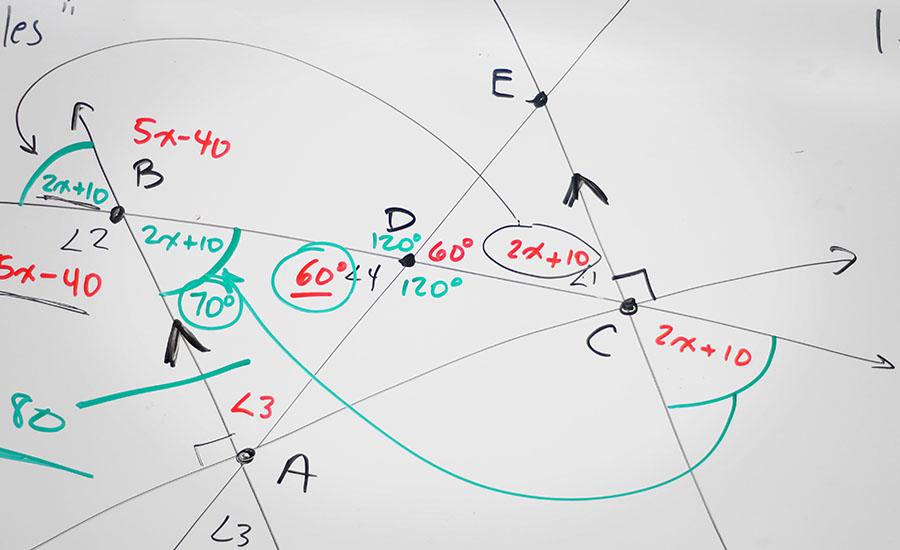Grades:
6th Grade, 7th Grade, 8th Grade
What would you do if you were dropped into the wilderness, with nothing but what you could fit into a backpack, and had to survive harsh weather, a hostile location, and possibly aggressive wildlife
Grades:
8th Grade, 9th Grade, 10th Grade, 11th Grade, 12th Grade
Over the course of three class sessions, spanning 90 minutes each, students will engage in an immersive project focusing on the outdoor air quality prevalent in four states situated in the
Grades:
6th Grade
In this 1st lesson in a series of 3, students learn about the Great Pacific Garbage Patch. They create a model and write and defend a claim about humanity's ability to mitigate the problem. This
Grades:
7th Grade, 8th Grade, 9th Grade, 10th Grade, 11th Grade, 12th Grade
This is a lesson geared toward junior high and high school classes to introduce students to the idea of cryptography and encryption. This lesson could be simplified for younger students by removing
Grades:
4th Grade
This lesson explores light energy, hydroponics, and metric measurement conversions (mm, cm, m). Students will identify the ways that different colors of light energy can affect plant growth. They will
Grades:
4th Grade
This engaging lesson explores electrical energy/currents, the engineering design process, and coding (picture, block, and python) with LEGO robots! Students will code their robots to navigate an
Grades:
6th Grade
In this engaging lesson, students will use an online planetarium and participate in a kinesthetic model activity in order to develop and revise a model explaining the apparent motion of the stars in
Grades:
8th Grade, 9th Grade
In this lesson, students will embark on an investigative journey to explore the geological history of their local community. Through hands-on activities and research, students will analyze rock layers
Grades:
6th Grade
Students will research and use math calculations to set up a classroom worm compost bin to compare to a classroom non-worm compost bin to be utilized for observation throughout the school year for
Grades:
8th Grade
This lesson covers three types of mechanical wave interactions- reflection, absorption, transmission. Students observe the interaction in a video or example, talk about what is happening as a class
Grades:
7th Grade
In the STEM Pine Cone Decoration lesson, students will embark on a creative and hands-on exploration of nature-inspired crafting, integrating science, technology, engineering, and math (STEM) concepts
Grades:
6th Grade
In this lesson students apply their Medieval Times knowledge and energy transfer to create a knight that will compete in a jousting tournament using spheros. The students will use a solo cup as the
Grades:
6th Grade
In this engaging lesson, students create simple paper models of water sheds in class and explore hazards to waterways through an online interactive. They make connections between water stewardship and
Grades:
10th Grade, 11th Grade, 12th Grade
This lesson includes a slide show and FITB notes page introducing Urbanization in a HS Environmental Science class. Benefits and drawbacks of urbanization are discussed, with a documentary about
Grades:
10th Grade, 12th Grade
This lesson builds on the Part 1 of Urbanization Impacts in the HS Environmental Science classroom. In this lesson, students are utilizing their knowledge to create models of solutions to the
Grades:
3rd Grade
In this engaging lesson, students will discover that technology is not limited to electronics and cars, but that it is all around us. It is essential for students to understand that most things were
Grades:
Kindergarten
This lesson provides the opportunity for kindergarten students to develop a mock oil spill and develop methods to help ocean life after an oil spill. Student will hypothesize methods that can
Grades:
9th Grade, 10th Grade
This is a lesson that shows how mutations can cause evolution and speciation. Students will also create graphs by using their data.
Grades:
5th Grade
Biologists have noticed that the saguaro mortality rates have increased in Central and Southern Arizona. They don’t know why - but they have some ideas. In this unit, students will learn more about
Grades:
4th Grade
This 4th grade STEAM lesson focuses on introducing students to Earth's four systems: Hydrosphere, Geosphere, Atmosphere, and Biosphere (excluding the Lithosphere). Students will learn about the Greek
Grades:
10th Grade, 11th Grade, 12th Grade
This is part 2 of a two-part series. This lesson looks deeper into early electronic encryption tools and how they relate to cryptography today. The tools discussed are: Hebern Rotor Machine, Enigma
Grades:
4th Grade
Students will conduct research about different types of severe weather and how to prepare for it, then share their research with classmates via slideshow presentations.
Grades:
6th Grade, 7th Grade, 8th Grade
This lesson integrates technology (microbits), engineering design, and career exploration for middle school students. It encourages hands-on learning and critical thinking through the creation of
Grades:
11th Grade, 12th Grade
This lesson is designed for 11 & 12th grade anatomy and physiology students. Students will design and execute a lab where they record their own electrical conduction system of the heart.
Featured Lesson Plans
Check out these notable lesson plans.

Grades:
4th Grade, 7th Grade, 9th Grade, 10th Grade, 11th Grade, 12th Grade
Students use Google Earth Timelapse to observe changes to glaciers over time before completing an investigation on the effects of melting sea ice and land ice on global sea level rise. This

Grades:
3rd Grade, 4th Grade, 5th Grade
This is the second lesson plan that goes with the series of four lesson plans for the book Song for a Whale by Lynne Kelly. This lesson focuses on vibrations, sounds, and music. The final project is

Featured
SNOW
Grades:
4th Grade
This lesson includes literacy, math, and art about snowflakes. Within math, students will dive into an analysis of angles within a common snowflake. Students will listen to an informational text about


